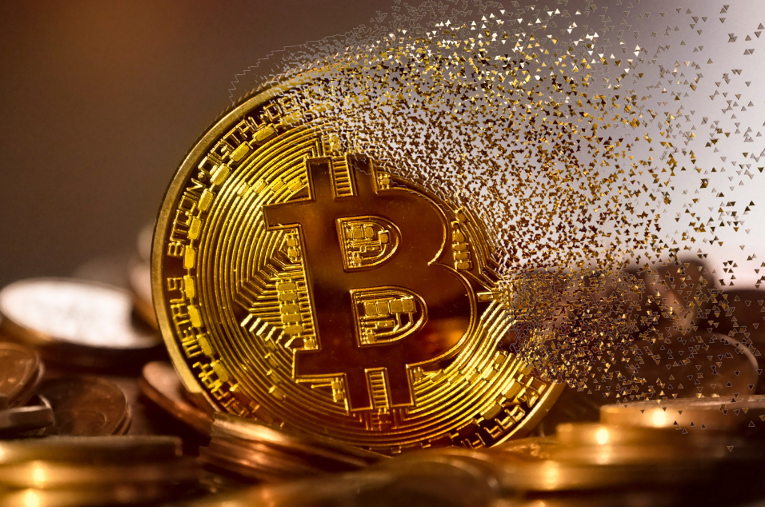As I was talking with my son about last week’s reflection on bitcoin, I told him how someone at a conference once told me to buy bitcoin—back in 2012. I told him that if I had bought just a thousand dollars’ worth, we’d now have $3.5 million. He said that’d be nice. And I had to really think about how differently my life’s path could have unfolded and find ways to communicate that with him.
I mentioned, fumbling, that new problems come with being rich—having to manage money, pay others to help you manage it, worry about the inevitable ups and downs of the bitcoin bubble. Then I explained that I probably would have sold much of that bitcoin earlier (not trusting the bubble to go on so long). So would I have felt better knowing I could have had $3 million but only got a few hundred thousand, or would I have felt better never gambling in the first place?*
Still, that didn’t seem to placate even me! So I returned again to the story of “May Be,” telling it again to Ayhan:
“An old farmer had worked his crops for many years. One day his horse ran away. Upon hearing the news, his neighbors came to visit. “Such bad luck,” they said sympathetically. “May be,” the farmer replied.
The next morning the horse returned, bringing with it three other wild horses. “How wonderful,” the neighbors exclaimed. “May be,” replied the old man.
The following day, his son tried to ride one of the untamed horses, was thrown, and broke his leg. The neighbors again came to offer their sympathy on his misfortune. “May be,” answered the farmer.
The day after, military officials came to the village to draft young men into the army. Seeing that the son’s leg was broken, they passed him by. The neighbors congratulated the farmer on how well things had turned out. “May be,” said the farmer.”**
It’s hard to tell whether something will be for good or for ill….
May Be: The Bitcoin Version
Maybe things would have been better, but maybe not. Perhaps I would have given some of that wealth to Worldwatch, the sustainability think tank that shaped my thought over 16 years, and saved it from its silent demise—but perhaps I would have been running it as well (focusing my life’s energy on fundraising and book and project development, and never finding the chance to explore deeper ecocentric thinking).
Perhaps I would have self-funded Yardfarmers and watched as it flopped, or worse, succeeded, and if the latter, found myself locked into a path of reality TV development.*** Perhaps I would have gotten distracted making eco-board games, or perhaps I would have self-funded a PhD. Most likely, I would have found excuses not to flesh out the Gaian Way (which I value more than any of my other work, but because of this, self-doubt reigns strongest). I’d have said, ‘Let me study a bit more before I put these ideas out there. Let me establish some tangible projects or a Gaian Foundation first.’ Worse, would I then have doubted the sincerity of those who joined the community? Are they here just because we offer grants? Perhaps good would have come out of my bitcoin fortune, but just as likely, it could have been accompanied by some ill.
The Coin of Power
I also realized as I continued the fantasy the next day—while/instead of meditating in the morning—that no matter how hard I resisted, my carbon footprint would have grown significantly. More travel—suddenly less expensive relatively (especially driven by ‘excusable’ reasons like bringing my wife’s parents, who live in Turkmenistan, to visit). Perhaps we would have even bought a small house in DC and maybe a little two-family in Middletown where my mom could live and make the other unit into an Airbnb she could manage except when we stayed for the summer. So I imagine our carbon footprint would have shot up just in our going back and forth to Connecticut (as well as in property, travel, upgraded appliances, and so on).
That reminded me that wealth takes on a life of its own. It’s like the Ring of Power in The Lord of the Rings.**** It sounds wonderful—slip on the precious and you will have all your heart desires—but no matter if you’re a little hobbit with small ambitions or a power-driven noble wizard, it bends you to its will. If anything, that thought cultivated a bit of compassion in me for the wealthy—they are not fully themselves, like when Boromir lashed out at Frodo at the end of The Fellowship of the Ring. Even the faint call of wealth can make us do crazy things—and extreme wealth can make us do really crazy things, whether that’s buying superyachts or pissing away money and carbon for a 5-minute ride into the thermosphere (not space).

Complete with helipad and boat launch. Yours for just $500 million—plus $20 million a year to maintain it. (Photo from DCwom via Wikipedia)
To Mount Doom
So, to keep extending the LOTR metaphor, we need to destroy the ring. Or at least keep it carefully guarded and out of people’s hands (but you know what that leads to…). That’s why I was excited to see this simple idea of a one-time wealth tax on billionaires’ earnings during COVID.
In the US, Senator Bernie Sanders introduced the “Make Billionaires Pay Act,” which would levy a one-time tax of 60 percent on billionaires’ gains between March 18th and the end of 2021, raising $420 billion (based on increased wealth as of August 5, 2021).
Oxfam has gone a step even further, suggesting a 99 percent tax on pandemic wealth gains for billionaires around the whole world, which would raise $5.4 trillion while still leaving “the world’s 2,690 billionaires $55 billion richer than before the virus struck.”
In the US, senators suggested using the gains to fund Medicare and extend unemployment payments, while Oxfam noted that this money could provide vaccines for the entire world and far more. Vaccines are good, and that money could also help significantly in solving the climate crisis—if used to shift the economy toward renewable energy (while lowering overall energy consumption); to nationalize and then shrink unsustainable industries; to reskill populations for sustainable livelihoods; to increase family planning access and comprehensive sexuality education; to restore damaged ecosystems and heal and expand forests; to fund social marketing efforts to encourage sustainable as opposed to consumer lifestyles, and so on. Of course, those investments are about as likely to come into being as the wealth tax is in the first place. Or about as likely as a little hobbit successfully dropping a ring into the fiery abyss of Mount Doom.

Please insert your bitcoins here. (Mt. Doom from The Lord of the Rings via Wikipedia)
But then again, at least in stories, there remains hope that we pull victory out of the clutches of defeat. In this case, much of this wealth will evaporate in the collapse anyway—that’s one consolation.***** But it’s not enough to hope for that—especially as the wealthy will stay wealthy in that case (relatively speaking); it is the poor who will suffer the most—starving as the elite hoard resources. Instead, we need to understand that as much as fighting for renewables, keeping fossil fuels in the ground, slowing population growth, and building a degrowth and circular economy, it is environmentalists’ duty to fight for reductions in inequity and reining in the excessive wealth of the richest. Never can it be ok, let alone sustainable, for 26 individuals to hold more wealth than 3.6 billion people. It is our responsibility to fight that, as few billionaires, or others, can resist the dulcet whispers of the precious coin of power. So we must help them to not succumb; we must pull it from their clawing grasp before they turn into coinwraiths bent on following their master in the dominion and destruction of Middle, and all of, Earth.
Endnotes
*As I wrote this, I suddenly remembered my father’s twice weekly ritual of buying a lotto ticket. How he dreamed of getting rich and escaping the rat race. I wonder if he ever played out the darker side of winning it big….
**Reprinted from Zen Stories to Tell Your Neighbors
***I have found myself, at least once in my career, wishing not to succeed. I had no desire to run a TV show for years—so when I imagined Yardfarmers succeeding, I did it with deeply ambivalent feelings!
****Why yes, I am reading The Lord of the Rings series with my son! How’d you guess?
*****And thus will do no more harm to the Earth.





